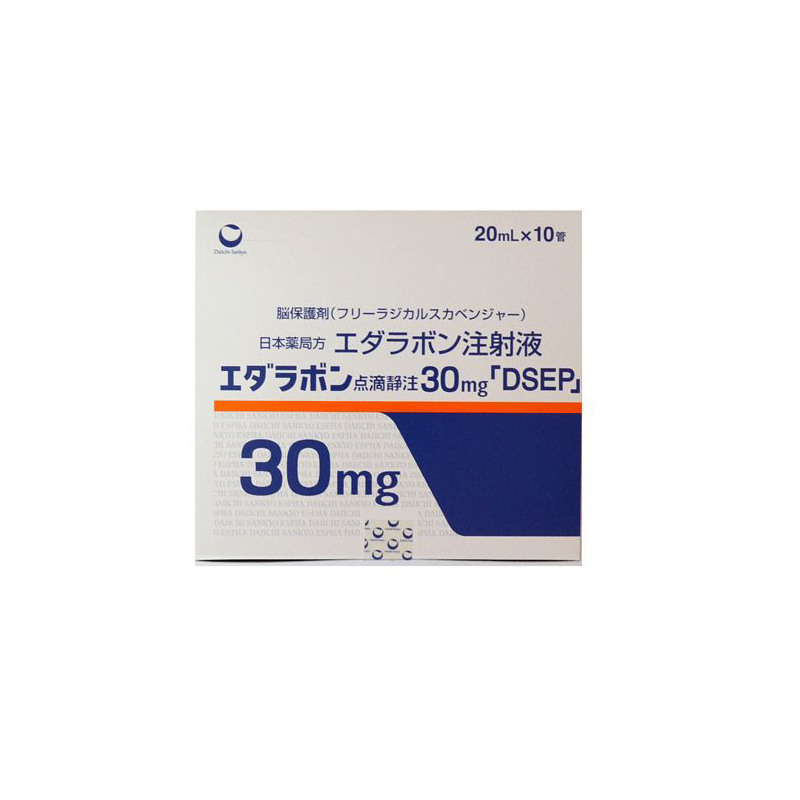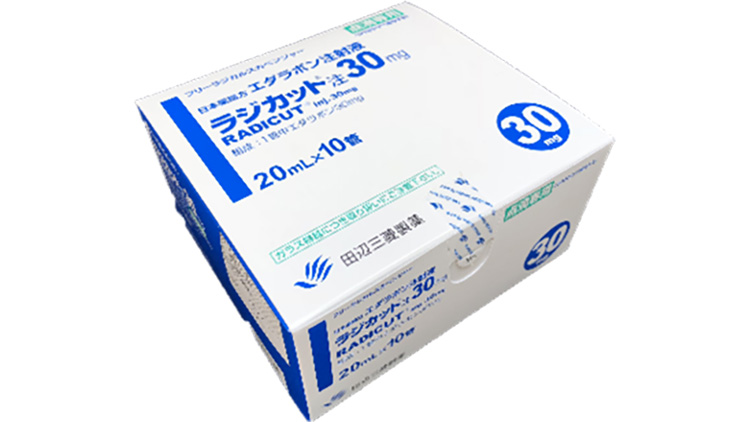Edaravone (Daiichi Sankyo) vs Radicut (edaravone)
Edaravone (Daiichi Sankyo) vs Radicut (edaravone)
Edaravone, marketed by Daiichi Sankyo, and Radicut are essentially the same medication, as Radicut is simply a brand name for edaravone used in certain countries, including Japan. Both formulations of edaravone are used to treat patients with amyotrophic lateral sclerosis (ALS) and may help slow the decline in physical function. When choosing between the two, availability and approval in the patient's country, as well as any potential cost differences, should be considered since the active ingredient and its intended effect are the same.
Difference between Edaravone and Radicut
| Metric | Edaravone (Daiichi Sankyo) | Radicut (edaravone) |
|---|---|---|
| Generic name | Edaravone | Edaravone |
| Indications | Amyotrophic lateral sclerosis (ALS) | Amyotrophic lateral sclerosis (ALS) |
| Mechanism of action | Free radical scavenger | Free radical scavenger |
| Brand names | Radicava, others | Radicut, others |
| Administrative route | Intravenous infusion | Intravenous infusion |
| Side effects | Headache, gait disturbance, bruising | Headache, gait disturbance, bruising |
| Contraindications | Patients with hypersensitivity to edaravone or any excipients of the formulation | Patients with hypersensitivity to edaravone or any excipients of the formulation |
| Drug class | Neuroprotective agent | Neuroprotective agent |
| Manufacturer | Daiichi Sankyo | Mitsubishi Tanabe Pharma |
Efficacy
Introduction to Edaravone and Its Use in ALS
Edaravone, developed by Daiichi Sankyo, is a medication that has garnered attention for its potential efficacy in the treatment of Amyotrophic Lateral Sclerosis (ALS), a progressive neurodegenerative disorder. ALS affects motor neurons in the brain and spinal cord, leading to muscle weakness, loss of motor control, and ultimately, respiratory failure. Edaravone, which is also known by its brand name Radicut, is an antioxidant that is thought to work by scavenging free radicals, thereby reducing oxidative stress which is believed to play a role in the neuronal damage characteristic of ALS.
Clinical Trials and FDA Approval
The efficacy of Edaravone for the treatment of ALS is supported by clinical trials. A pivotal phase 3 study conducted in Japan demonstrated that Edaravone could slow the decline in physical function in patients with ALS. Based on the strength of these findings, Edaravone was approved by the Japanese Pharmaceutical and Medical Devices Agency (PMDA) in 2015. Subsequently, in May 2017, the U.S. Food and Drug Administration (FDA) also approved Edaravone for the treatment of ALS. This approval provided a new treatment option for patients with ALS, a disease for which treatment options are limited.
Assessing Efficacy in ALS Patients
The efficacy of Edaravone in ALS patients has been assessed using the ALS Functional Rating Scale-Revised (ALSFRS-R), a validated instrument that measures the physical function in carrying out activities of daily living. In the clinical trials, patients treated with Edaravone showed a statistically significant reduction in the rate of decline in the ALSFRS-R score compared to those receiving a placebo. This suggests that Edaravone may be effective in preserving motor function in patients with ALS, although it does not halt the progression of the disease or lead to improvement in motor function.
Considerations and Ongoing Research
While Edaravone has shown efficacy in clinical trials, it is important to note that its effects may vary among individuals, and it is not a cure for ALS. The treatment is generally well-tolerated, but long-term safety and efficacy data are still being collected. Ongoing research continues to evaluate the potential benefits of Edaravone in different subpopulations of ALS patients and to understand its mechanism of action more fully. As with any medication, the decision to use Edaravone should be made on an individual basis, considering the potential benefits and risks, and in consultation with a healthcare provider who is knowledgeable about ALS.
Regulatory Agency Approvals
Edaravone
-
Pharmaceuticals and Medical Devices Agency (PMDA), Japan

Radicut
-
Food and Drug Administration (FDA), USA

-
Health Canada

-
Pharmaceuticals and Medical Devices Agency (PMDA), Japan

Access Edaravone or Radicut today
If Edaravone or Radicut are not approved or available in your country (e.g. due to supply issues), you can access them via Everyone.org.
How it works

Make an enquiry
Choose the medicine you want to buy, answer a couple of questions, and upload your prescription to speed things up. We’ll get back to you within 24 hours.


Make an enquiry
Choose the medicine you want to buy, answer a couple of questions, and upload your prescription to speed things up. We’ll get back to you within 24 hours.


Breeze through the paperwork
We'll guide you through the required documents for importing unapproved medicine, ensuring you have all the necessary information.


Get a personalized quote
We’ll prepare a quote for you, including medicine costs and any shipping, administrative, or import fees that may apply.


Receive your medicine
Accept the quote and we’ll handle the rest - sourcing and safely delivering your medicine.

Some text on this page has been automatically generated. Speak to your physician before you start a new treatment or medication.
Let's talk
If you have any questions, call us or send us a message through WhatsApp or email:
Contact us




